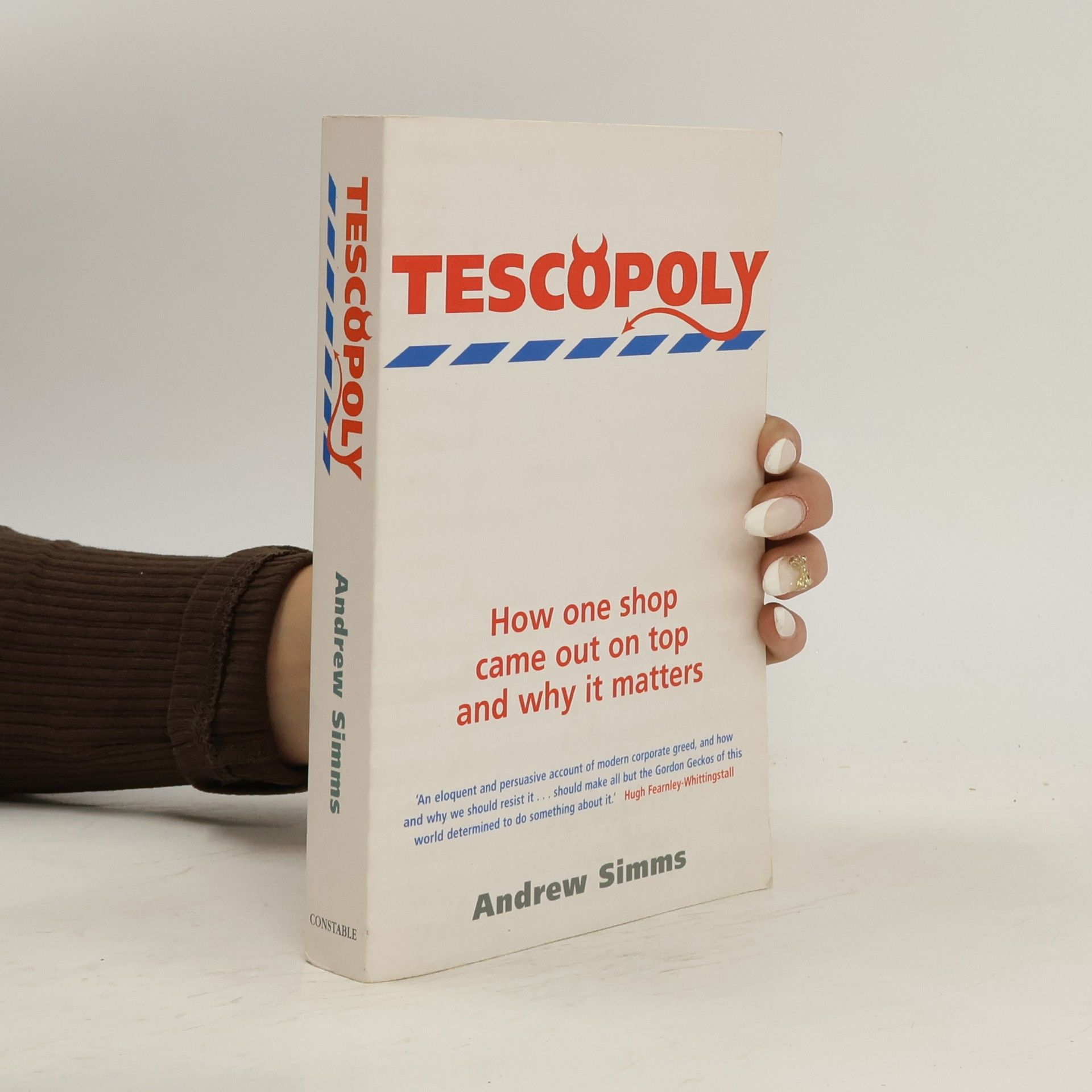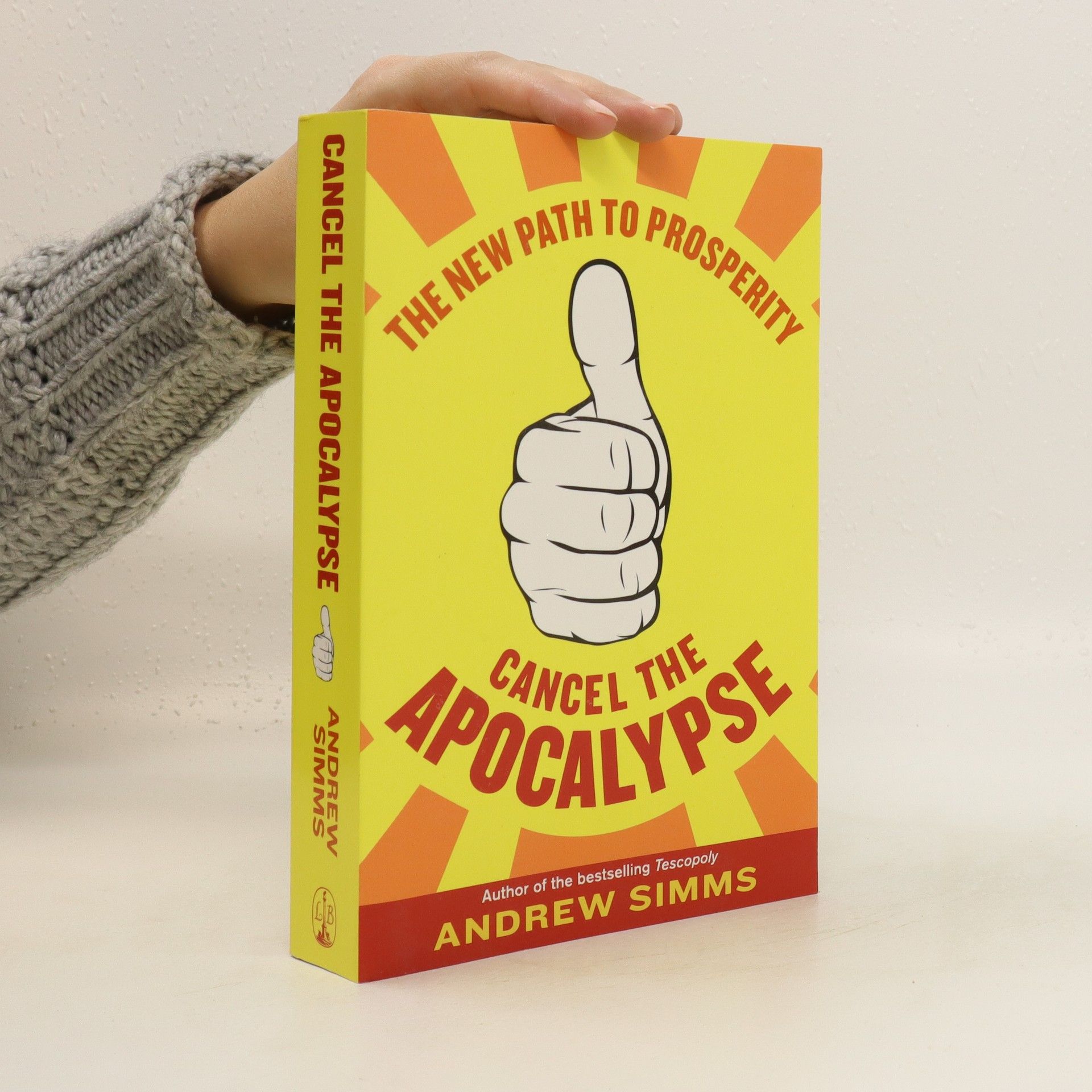Badvertising
- 272 pages
- 10 hours of reading
Uncovers the devastating psychological, social and environmental costs of advertising
Andrew Simms is the author of a book that examines ecological debt and global warming in relation to the wealth of nations. He focuses on the deeper economic and environmental connections shaping our world. His work calls for a re-evaluation of current economic models and their planetary impact. Simms's approach offers a critical perspective on the relationship between economics and ecology.





Uncovers the devastating psychological, social and environmental costs of advertising
Už jste někdy zažili pocit, že se všechno kolem hroutí? Nejste sami. Všechno, od bankovních praktik po globální oteplování, možná vypadá beznadějně, ale co kdybychom mohli chod věcí vrátit do původních, nebo možná ještě lepších kolejí? Co když to jediné, co nám v tom brání, je nedostatek představivosti a nadbytek zastaralých ortodoxních přístupů? Co si máme myslet o světě, kde je možné, aby jedna země dovážela stejné množství zmrzliny, toaletního papíru a dalšího zboží, jako vyváží a kde jsou vysoce postavení bankéři placeni miliony za to, že ničí ekonomické hodnoty, zatímco uklízečky v nemocnicích vytvářejí hodnoty, které představují několikanásobek jejich platu? Pomocí fascinujících a ikonoklastických detailů – počínaje krachem v našich peněženkách a konče způsobem, jakým se stravujeme a pracujeme – nás kniha Konec světa se nekoná informuje o skutečnosti, že vyčerpávající honba za hospodářským růstem možná vůbec nestojí za vynaložené úsilí, že za náš přehnaně materialistický přístup platí vysokou daň životní prostředí a hlavně že to všechno nás nakonec vůbec nečiní šťastnými.
A fascinating look at a world in which we have become obsessed with economic growth at theexpense of quality of life, and what we can do to change Ever get the feeling that things are falling apart? You're not alone. From bad banks to global warming it can all look hopeless, but what if everything could turn out, well, even better than before? What if the only thing holding us back is a lack of imagination and a surplus of old orthodoxies? In fascinating and iconoclastic detail—on everything from the cash in your pocket to the food on your plate and the shape of our working lives—this book describes how the relentless race for economic growth is not always one worth winning, how excessive materialism has come at a terrible cost to our environment, and how it hasn't even made us any happier in the process. The author believes passionately in the human capacity for change, and shows how the good life remains in our grasp. While global warming and financial meltdown might feel like modern day horsemen of the apocalypse, this book shows how such end of the world scenarios offer us the chance for a new beginning.
In his analysis, Andrew Simms, director of the acclaimed think-and-do-tank the New Economics Foundation, and in association with tescopoly.org, tackles a subject that none of us can afford to ignore - what supermarkets in general, and Tesco in particular, are doing to the way we think we live our lives.